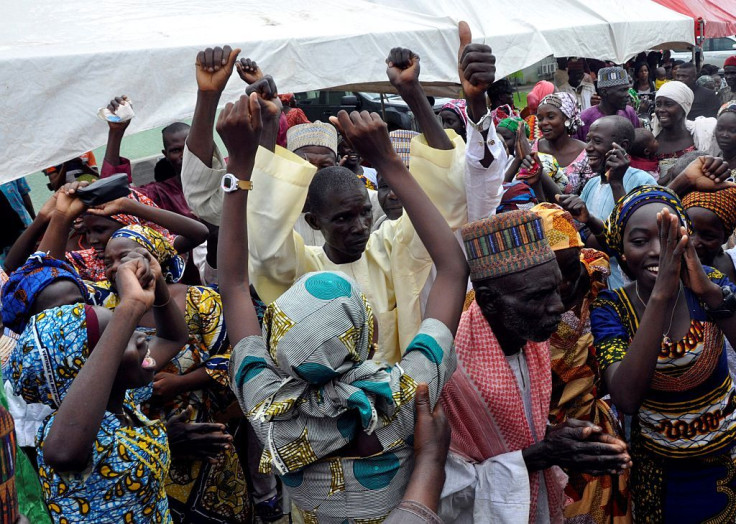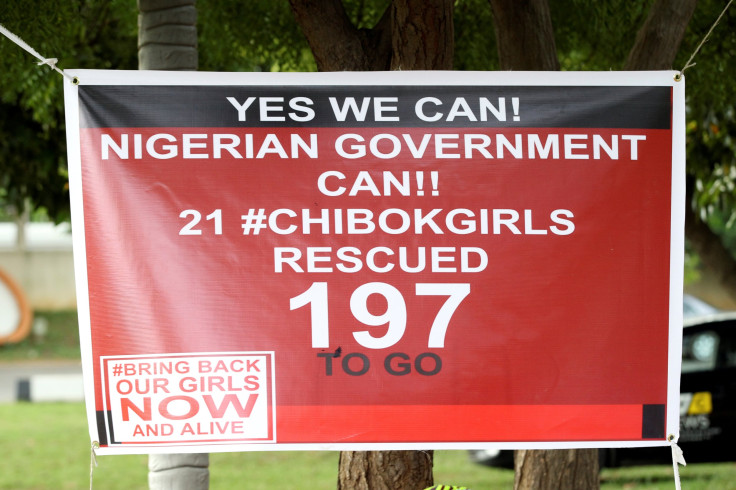Chibok Kidnapping: Boko Haram Ready To Release More Girls As Military Defeats, Internal Unrest Spark Negotiations

A Boko Haram faction is prepared to negotiate the release of 83 more of over 200 schoolgirls that the Islamic State-affiliated group kidnapped from the northeastern Nigerian town of Chibok in 2014, Reuters reported Sunday.
The same faction previously released 21 hostages Thursday after making a deal with the International Red Cross and Swiss government. The freed women were moved from the northeastern city of Maiduguri to the capital city of Abuja to meet state officials and relay the group’s message.
"These 21 released girls are supposed to be tale bearers to tell the Nigerian government that this faction of Boko Haram has 83 more Chibok girls," Garba Shehu, spokesperson for Nigerian President Muhammadu Buhari, told Reuters.
"The faction said it is ready to negotiate if the government is willing to sit down with them," said Shehu, adding that the state is ready to talk.

Boko Haram is an Islamic fundamentalist group in Nigeria. Its name translates colloquially to “Western education is forbidden.” Since allying with the militant group also known as ISIS in 2015, members officially refer to the group as the Western African State, connecting them to ISIS’ larger self-proclaimed caliphate. Since its establishment in 2002, Boko Haram’s violent campaign has killed tens of thousands and displaced millions in Nigeria.
In 2014, the group conducted a mass kidnapping that was met with international outrage. The group stormed the Government Secondary School in the town of Chibok, located within the restive northeastern Borno State, and took 276 female students. While over 50 managed to escape since and one was discovered earlier this year, the government has attempted to no avail to secure the release of the rest through both diplomatic and military action.
Military defeats and internal unrest may be influencing Boko Haram's recent decision to come to the table. The Nigerian army has recaptured most of the group’s territory, which in 2015 was the size of Belgium, and the militants are known to have experienced at least two major divisions. The faction participating in negotiations is believed to be led by a man named Mamman Nur, who split from the larger Boko Haram to form the Vanguard for the Protection of Muslims in Black Lands (Ansaru) in 2012.
In August, Boko Haram was divided once again after ISIS announced that the Nigerian group’s leader, Abubekar Shekau, would be replaced by former spokesperson Musab al-Bernawi. Shekau refused to recognize the decision, declaring it a "coup" attempt. The following month, Shekau appeared in a video message to dispel rumors of his death and called on the Nigerian government to release captured militants in exchange for the Chibok girls.
Information Minister Lai Mohammed denied Thursday that detained Boko Haram fighters had been swapped for the kidnapped schoolgirls, but said he was not aware of whether or not a ransom had been paid, Reuters reported. He confirmed that recent Nigerian army operations against the group in the Sambisa forest would continue.
© Copyright IBTimes 2024. All rights reserved.





















